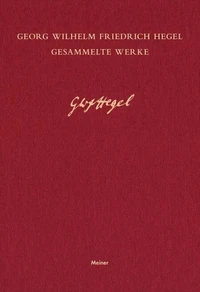In "The Philosophy of Fine Art, " Georg Wilhelm Friedrich Hegel delves into the intricate relationship between art, philosophy, and the unfolding of human spirit. Spanning three volumes, Hegel articulates a comprehensive framework that positions art as a manifestation of the Absolute Spirit, evolving through historical contexts and aesthetic paradigms. His dialectical method, characterized by a synthesis of opposing ideas, presents art not merely as an object but as a dynamic process that reflects the cultural and intellectual milieu of its time.
Hegel's prose, while dense and philosophical, is imbued with a passion for art that invites readers to explore the depths of beauty and meaning within cultural artifacts. Hegel, an influential German philosopher and a key figure in German Idealism, emerged from a background steeped in history, theology, and metaphysics, which profoundly shaped his thoughts on aesthetic theory. His intellectual journey through the tumultuous political landscape of early 19th-century Europe also fed into his contemplation of art's role in societal development.
Experiencing various forms of art from classical to contemporary, Hegel's observations are suffused with a belief in art's capacity to express the ethical life of its time. This seminal work is essential for both students and scholars of philosophy and the arts, providing a rich, philosophical explorative ground for understanding the evolution of aesthetics. Readers seeking to unravel the complexities of art's significance within human culture will find Hegel's profound insights a compelling and transformative experience.
In "The Philosophy of Fine Art, " Georg Wilhelm Friedrich Hegel delves into the intricate relationship between art, philosophy, and the unfolding of human spirit. Spanning three volumes, Hegel articulates a comprehensive framework that positions art as a manifestation of the Absolute Spirit, evolving through historical contexts and aesthetic paradigms. His dialectical method, characterized by a synthesis of opposing ideas, presents art not merely as an object but as a dynamic process that reflects the cultural and intellectual milieu of its time.
Hegel's prose, while dense and philosophical, is imbued with a passion for art that invites readers to explore the depths of beauty and meaning within cultural artifacts. Hegel, an influential German philosopher and a key figure in German Idealism, emerged from a background steeped in history, theology, and metaphysics, which profoundly shaped his thoughts on aesthetic theory. His intellectual journey through the tumultuous political landscape of early 19th-century Europe also fed into his contemplation of art's role in societal development.
Experiencing various forms of art from classical to contemporary, Hegel's observations are suffused with a belief in art's capacity to express the ethical life of its time. This seminal work is essential for both students and scholars of philosophy and the arts, providing a rich, philosophical explorative ground for understanding the evolution of aesthetics. Readers seeking to unravel the complexities of art's significance within human culture will find Hegel's profound insights a compelling and transformative experience.

 , qui est-ce ?
, qui est-ce ?